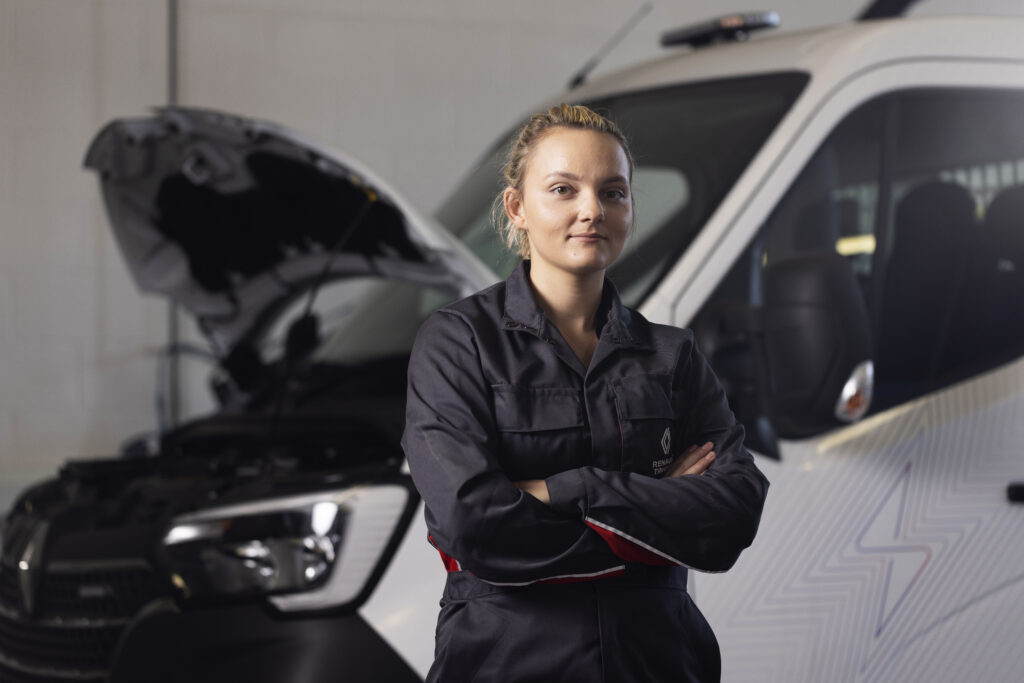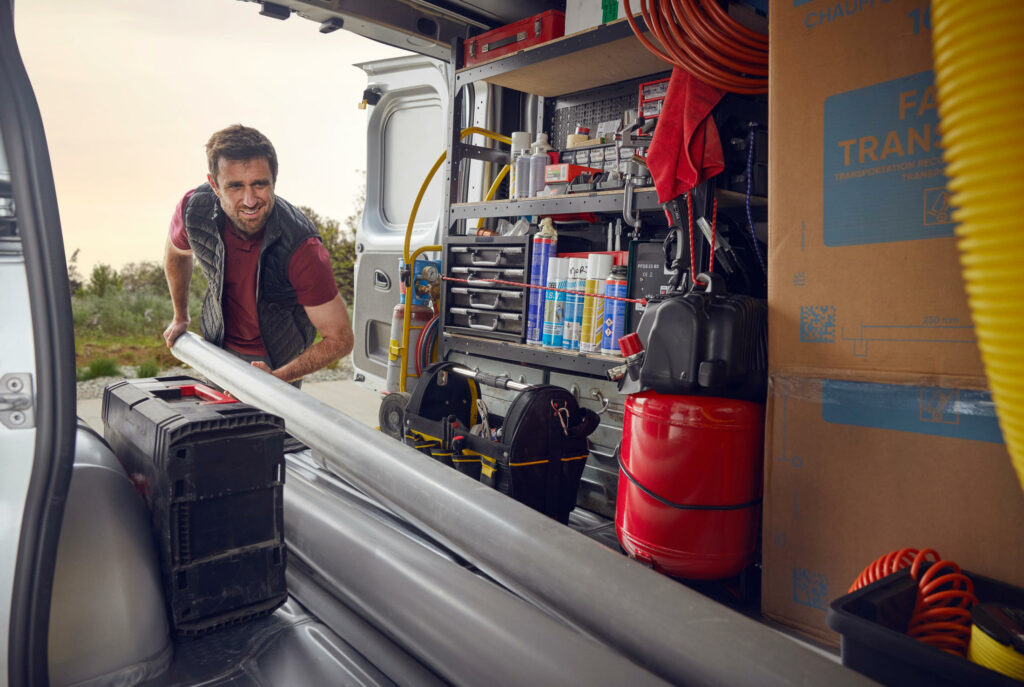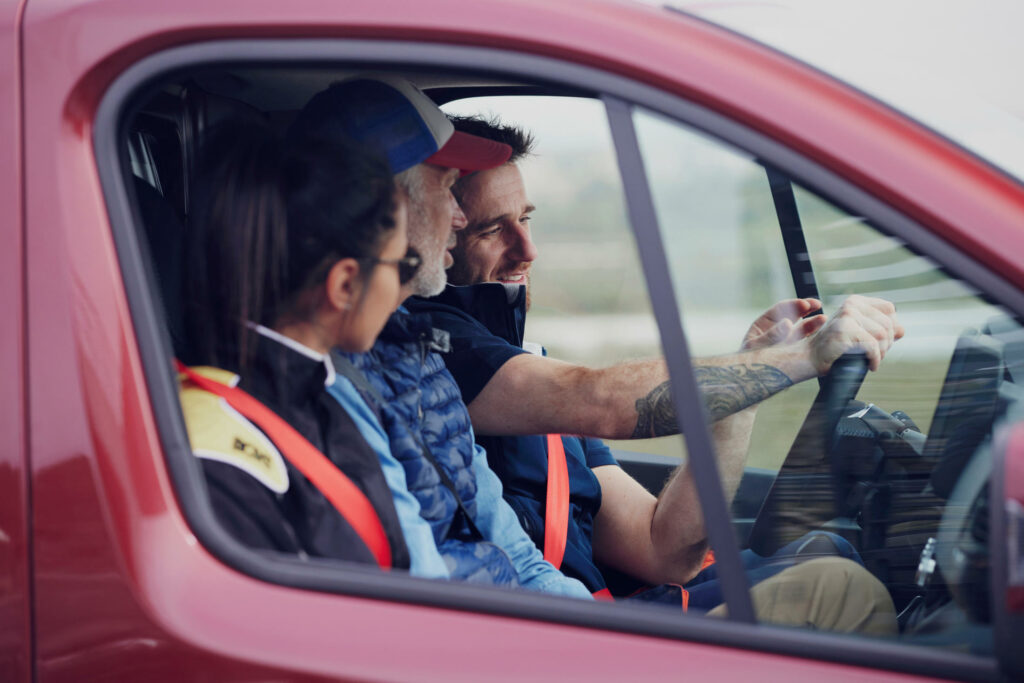Budgeting the operation of any vehicle is essential and there is so much to consider! Road tax, insurance, tyres, R&M and that’s just a few. Some costs are not controllable, but fuel can be.
We may not be able to control the price of fuel, but we can control when and how we use it.
Everyone knows to avoid motorway stations but adapting certain driving behaviours can stretch your tank further – no matter where the fuel came from.
By following these tips, you may see a considerable drop in your fuel costs.

Vans aren’t the most aerodynamic vehicles on the road (although manufacturers are working on it). This means fuel is used up more naturally due to air drag. Ladder or roof racks can hinder this even more. Consider bringing only essential ladders or explore having ladder racks installed inside your van.
Here’s a secret – don’t totally rely on your van’s tyre pressure monitoring system – it only alerts you if a tyre drops faster than the others.
According to the National Highway Traffic Safety Administration (NHTSA), your van will increase fuel consumption by 3% for every 10% your tyre pressure drops.
So, if your van’s MPG is 30, you could be paying an extra £52 a year because of your flabby tyres!
Ok, sometimes it’s unavoidable and as much as it is tempting to overload your van – it could be costing you – even if it’s just by a little.
Is there anything you don’t need in your van? Are there some tools you forgot you had and don’t need? Did you take out all the materials you didn’t use on that job a few weeks ago?
Having a bit of a clear out of the back of your van not only gives you the chance to have it cleaned, but the reduced weight also reduces your fuel consumption.

Did you know that 70 litres of diesel weighs over 57KG. If you run your van on half a tank, you’ll be saving on weight and increasing your fuel efficiency.
Although it does feel like a godsend on a hot day, does your air con need to be on 365? It eats your fuel meaning you’d be finding yourself at the petrol station a lot more than you’d want to be.
When it’s cooler, think about whether it’s a necessity – like demisting your windows. If you do want it on, consider the recirculation mode – it’s much more fuel-friendly.
If your windows are open for that extra bit of fresh air, the turbulence means you’ll be using a lot more fuel to maintain your speed.
If you’re driving over 40mph, keep the windows up.
Regular servicing means you’ll be running your van more efficiently.
Issues such as blocked air filters and sticky brake pads means you’re essentially driving with the brakes on.
Leaving little things unactioned can lead to bigger problems which takes your van out of action for longer. Nipping these small issues in the bud not only saves you time – it also saves you a lot of cash.
Ditch the trailer when you don’t need it otherwise it will cost you in fuel.
Always check before you travel! By avoiding heavy traffic you’ll save fuel.
Your satnav will always find the quickest routes and does its best to steer you away from grid-locked roads. But if you can’t avoid traffic, can you get away with turning the engine off if you can?
Smooth driving reduces unnecessary fuel consumption. Are you doing the following?

The heat and friction created in the disks and drums in your brakes eats fuel. Accelerating as soon as possible helps you save fuel.
Although accelerating sooner can help your tank stay fuller for longer – its more efficient to change up when you’re at max torque.
Check your rev counter – aim for 3000 rpm. Revving through your gears wastes fuel.
Higher speeds mean higher fuel consumption.
Most people tend to stick to the speed limit as much as possible. However, if you go at 6mph on the motorway, its more economical than going at 70.
If you also have cruise control – use it!
There are many ways for you to save on fuel, by picking the best practices for you – you’ll start to notice the cost of operation drops little by little. Changing your behaviour and keeping your van in top condition could be one of the most economical and positive things you do.